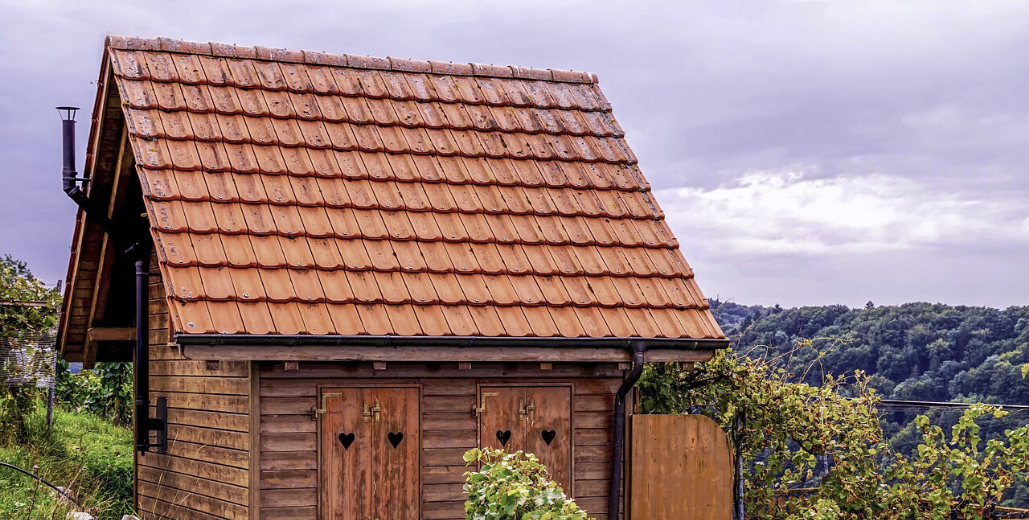
Part 1: The Last of the Homely Houses

It was a night of thick darkness. The wind pushed at my car first from one side, then another. The rain spattered against the glass violently, and my headlights seemed futile against the outer blackness. Even the familiar roads seemed to stretch beyond their normal length, as a shadow stretches past its object. And then, all of a sudden, lighted windows flashed out like the beacon of a lighthouse. They seemed to spill laughter and cheer, as if the house could not contain its mirth. As I approached, I could not help thinking that this must be the “last homely house” described by Tolkien.
A Light in the Darkness
A homely house is the image of hospitality. An open door and a hearty welcome are among the most valuable things one can offer to his fellow man. To the weary traveler, it promises safety, comfort, and rest. To the starving, it promises sustenance. To the lonely, it promises companionship. To the confused, it promises assurance. To the anxious, it promises peace.
These homely houses are like islands in the midst of a stormy sea. So many houses stand dark and empty, while their inhabitants seek pleasure and entertainment elsewhere. People spend fortunes on extravagant homes, yet hardly live in them. Nobody is at home to welcome the stranger or traveler. And aren’t we all travelers, storm-tossed by the world at one point or another? Don’t we seek refuge from anxiety, confusion, or desolation? Are we not all in need of some bright and happy resting place to rejuvenate our spirits before plunging again into our daily battles?
The Personal Factor
But perhaps hospitality is outdated. Maybe it had a place in the ancient world or the Middle Ages, but surely modern peoples have moved beyond that with their huge technological advancements? We have found new ways of connecting with other people, even those who live on the other side of the globe or speak a different language. Contemporary society highlights social media and the myriad ways we can interact with others.
All the social media in the world can’t replace hospitality. The world can be a very cold place, and all of its technological “connectedness” can leave us feeling more isolated than ever. Interactions through text on a screen prevent one from experiencing another as a person. When we remove the humanity–the personal factor–from a situation, that reduces it to one of utility only. What could have been a congenial conversation turns into an interaction where the other person’s worth is based on whether or not he can answer my question or benefit me in some way.
Compromising Human Dignity
This attitude of basing a person’s worth on performance or productivity can easily become a habit. This affects our interactions and relationships with people we do see face to face–or “in person.” This phrase is key because it shows that when we are physically present with another human being, we experience his or her personhood. This is more than his speech, voice, and physical appearance: a robot has those. It’s his entire being, composed of body, mind, and spirit. This being calls for a response worthy of a human person.
A response of utility does not acknowledge the dignity of a person. However, when all we see is a line of text on a screen, it’s easy to forget that there is an unrepeatable human being at the other end. All this to say that we as persons desire and need to be treated with a dignity and kindness, and hospitality does just that. This is why hospitality is so important, today and in every age: it is a distinctly human trait which nourishes body, mind, and spirit.

The Elements of Hospitality
Physical Elements
Hospitality’s first aim is to provide for the material needs of the body: food, clothing, and shelter. Whether it’s an elaborate feast or a simple repast is not the point. The point is sharing food with someone who’s hungry. Just like any other virtue, hospitality focuses outward, on other people. It isn’t turned inward toward itself. Hospitality sees a need and does what it can to help, like the Good Samaritan. He showed hospitality to a stranger even while he himself was traveling, and had to go out of his way to provide for the needs of the injured victim.
Thus hospitality isn’t something you can only practice at home. But it does start at home. Hospitality is about taking care of people and providing for their needs–and what better place to do that than in your own home? Within a family, there are countless opportunities for feeding the hungry, giving drink to the thirsty, comforting the sorrowful, and attending to a host of other material, mental, and spiritual needs. Indeed, family life is like a school for learning mercy and putting it into action.
Intangible Elements
Besides providing for the physical needs of the guest, hospitality attends to his mental and spiritual needs as well. The most important of these are the gifts of rest and refuge. There is a hospitality of the heart which extends beyond a physical offering of food and drink: it invites him to participate in the life of the home he has entered, to be a part of the family for a time.
This doesn’t mean that each guest learns everything there is to know about his host, or vice versa. In fact, respecting privacy is an important part of hospitality. But welcoming a guest to participate in family life means accepting him as he is. This acceptance is what produces a psychological place of rest, a safe haven where one can relax his constant vigilance.
Hospitality in Middle Earth
In The Fellowship of the Ring, Tolkien describes Rivendell through Bilbo’s eyes. He says it is “a perfect house, whether you like food or sleep or story-telling or singing, or just sitting and thinking best, or a pleasant mixture of them all. Merely to be there was a cure for weariness, fear, and sadness.”
What makes Rivendell such a perfectly balanced environment? How can one house suit every temperament? Hospitality draws the guest in, but also gives him space to himself. The thoughtful host may offer an array of activities, but not insist that the guest participate in all of them.
Offer the Best
Let’s look a little deeper at what Rivendell offers to guests. The first thing Bilbo mentions is food. This is not surprising, as he is a hobbit. It’s pretty important to us humans as well. But it’s not just any food: “More than a meal! A feast!” Merry tells Frodo jubilantly. “As soon as Gandalf reported that you were recovered, the preparations began.” Elrond gives his guests the best he can offer. Of course, not everyone has the means to feast their guests. We see the same hospitality in The Hobbit when, years earlier, Bilbo entertained an unexpected party of dwarves. His food was not fancy, but he gave the best he had.
Sleep is the next item on Bilbo’s list. It would be easy to say that everyone needs sleep, and leave it at that. There’s more to it, however. Frodo’s injury and subsequent recovery in Rivendell highlight the importance of sleep for healing and rejuvenating both body and spirit. This restorative sleep is not possible unless one is in a safe place, so sleep and safety are closely connected.
Revitalizing Leisure
Story-telling and singing probably aren’t the first things that come to mind when we think of hospitality. But again, hospitality is about more than food and shelter. In The Lost Arts of Modern Civilization, Mitchell Kalpakgian speaks of the “revitalizing leisure of hospitality” which “cheers the heart, uplifts the soul, exhilarates the body, and elevates the mind.” (p. 4) Leisure activities such as singing, dancing, good conversation, story-telling, sports, and games are very much a part of hospitality.
The final item Bilbo mentions in his description of Rivendell’s hospitality is “just sitting and thinking.” Any host might wish to entertain his guests and enjoy their company, but it takes humility to step back and allow the guest time alone.
A hospitable household will never lack friendship. And true friendship is a gift that technology cannot give. If families are the building blocks of society, then hospitality is the mortar that glues them together. It unites people in their common need for food and shelter, as well as companionship. Welcoming another person enriches both the host and the guest, and makes their lives a little brighter.
***
If you enjoyed this article, continue reading Part 2 of the Cultivating Hospitality series.



 Hi, I’m Kimberly! I’m an Alaskan wife and mother who loves simple, old-fashioned living. If you’re looking for country-style recipes from scratch or simple homemaking ideas, pour yourself a cup of tea and join me!
Hi, I’m Kimberly! I’m an Alaskan wife and mother who loves simple, old-fashioned living. If you’re looking for country-style recipes from scratch or simple homemaking ideas, pour yourself a cup of tea and join me!